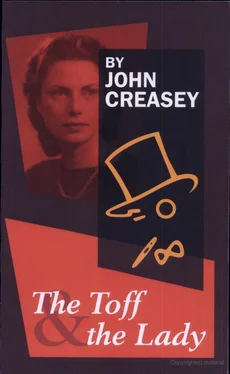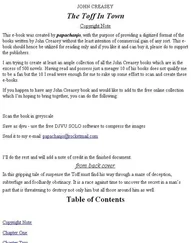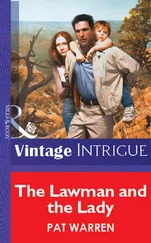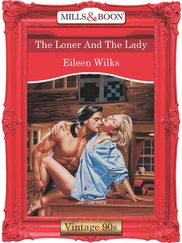John Creasey - The Toff and The Lady
Здесь есть возможность читать онлайн «John Creasey - The Toff and The Lady» весь текст электронной книги совершенно бесплатно (целиком полную версию без сокращений). В некоторых случаях можно слушать аудио, скачать через торрент в формате fb2 и присутствует краткое содержание. Жанр: Старинная литература, на русском языке. Описание произведения, (предисловие) а так же отзывы посетителей доступны на портале библиотеки ЛибКат.
- Название:The Toff and The Lady
- Автор:
- Жанр:
- Год:неизвестен
- ISBN:нет данных
- Рейтинг книги:5 / 5. Голосов: 1
-
Избранное:Добавить в избранное
- Отзывы:
-
Ваша оценка:
- 100
- 1
- 2
- 3
- 4
- 5
The Toff and The Lady: краткое содержание, описание и аннотация
Предлагаем к чтению аннотацию, описание, краткое содержание или предисловие (зависит от того, что написал сам автор книги «The Toff and The Lady»). Если вы не нашли необходимую информацию о книге — напишите в комментариях, мы постараемся отыскать её.
The Toff and The Lady — читать онлайн бесплатно полную книгу (весь текст) целиком
Ниже представлен текст книги, разбитый по страницам. Система сохранения места последней прочитанной страницы, позволяет с удобством читать онлайн бесплатно книгу «The Toff and The Lady», без необходимости каждый раз заново искать на чём Вы остановились. Поставьте закладку, и сможете в любой момент перейти на страницу, на которой закончили чтение.
Интервал:
Закладка:
“Not yet,” said Rollison, “but we are going to cheer Grice up. If Shayle’s at the Devon address the police will get him before the night’s out.” He went to the telephone and tried Grice’s home number.
“How much is Shayle’s address worth?” Rollison asked.
“What?” cried Grice. “Have you got it?”
Rollison passed on the necessary particulars. The Superintendent was in such a hurry to get in touch with the Devonshire police that he did not even ask Rollison where he had obtained the information, but rang off and said that he would look in later. Rollison replaced the receiver, paused for a moment, and then said slowly: “Jolly.”
“Yes, sir.”
“If she is alive, I am going to find Lady Lost.”
“I am sure you are sir,” said Jolly, “I have no doubt at all about that. I—excuse me.”
He made his dignified way towards the hall and the front door, for the bell had rung. Before he opened it there was another ring, which did not stop until there was an exclamation from Jolly—one so unexpected and so out of character that Rollison was afraid his man had been hurt. He stepped swiftly to the door, putting his right hand to his pocket, an instinctive gesture, for he was not carrying a gun.
Before he looked round the door, some of his fears were dispelled, for Jolly said in a voice that was a little unsteady: “Good-evening, Madam.”
Rollison stepped forward—and he saw Lady Lost huddled in costly furs, bare-headed and very pale, push past Jolly and walk slowly towards him.
CHAPTER NINE
‘ COME BACK PETER, FLY AWAY PAUL’
ON the woman’s lips was a smile which made her the living image of that photograph; as indeed, she was. She advanced slowly towards Rollison, her right hand outstretched, and he stood still. The photograph had been a triumph of the camera’s art, but beside this woman it was insignificant, a dull shadow, a paltry thing to be forgotten.
Her eyes were hazel, the brown lashes curled upwards as if nature had been improved upon, and yet Rollison got the impression that their curve was natural. Her eyes slanted ever so little towards the temples, and her cheek-bones were high although not remarkably so; certainly the type was not English. But what most attracted him was her complexion. There was not a tinge of colour in it; it was like alabaster, pale and glowing, so perfect that it did not seem quite real. She had used no make-up, and her lips were only faintly outlined, yet in spite of that warmth and vitality seemed to spring from her.
When he touched her outstretched hand and bowed over it, her fingers were cool.
You are very welcome,” he murmured, and into his eyes there sprang a smile, at once gallant and gay. When Jolly saw it, his own face lit up; here was the real Rollison.
“You are very kind,” said the woman.
Her voice had a huskiness which was attractive. There was a trace of foreign accent, too.
“After all,” said Rollison, taking her arm and leading her into the study, “I’ve been wanting to talk to you for a long time.”
“So I understand,” she said. “You wrote to me.”
Rollison did not correct her.
“And you lied to me,” she said slowly. “I can see that now— you have never seen me before and you do not know who I am, although in your letter you said you did.” Something of her vitality seemed to ebb, and she sat down slowly. Rollison took her coat and handed it to Jolly.
She looked up at him. “Why did you make me hope?”
“Not I,” said Rollison, “but a mutual friend. I’m glad that he wrote to you, because otherwise you would not have come.”
She frowned. “ More knavery?” The word came naturally from her lips.
“More knavery which we can counter,” said Rollison, sitting on the arm of his chair and smiling at her. “Will you have a drink?”
She said: “No, but I am very hungry.”
“That can soon be put right,” said Rollison, and he rang for Jolly. “We will have dinner as quickly as possible.”
“Very good, sir.” Jolly retired, and Rollison looked back at the woman.
If she were not lying by inference, her memory was no better than when she had arrived at Barrington House. It was too soon for him to be convinced that she was telling the truth, and yet he wanted to believe her. From the moment he had seen her photograph he had wanted to see her in the flesh, to hear her voice and see the colour of her eyes, to know the living reality of her—and here she was, dressed in a plain black evening gown, with shoes of black satin trimmed with diamante, without other jewellery or make-up, with her brown hair plaited and coiled about her head and shining with a soft lustre.
“So,” she said, speaking with great deliberation, “you do not know me, and you cannot help me.”
“Only the first is true,” he said.
She looked puzzled. “Why should that be?”
“Nearly a month ago, before you arrived at Barrington House, an unknown person sent me your photograph, and I have been at your command from that moment!”
She smiled. “An Englishman who is gallant!”
“There is more in us than you suspect,” he said. “So you know that you are not English?”
“That is one thing about which there is no doubt,” she said.
“The doctors were quite sure of that, and so they tried to make me remember what I am, and yet they failed. I remember nothing , except appearing in that gay ballroom, with many strange people looking at me. Then the room suddenly began to go round, the lights danced, the people swayed as they came towards me—and then, darkness!” Throughout that speech her voice had been pitched on so low a key that he could hear what she said only with difficulty. After a long while, she went on: “Darkness, and the hospital, and all that happened afterwards. I remember quite well.”
“Everything!” asked Rollison.
“Everything,” she said, “and yet not enough, for your police have asked me whether I saw a stranger in my room, and I remember no stranger; I remember only that I was sick, so very sick, and I did not think that I would live. Yet I am here —as I was there—seeking myself:
“With others also looking for you,” said Rollison. “Someone knows who you are.”
Her eyes lit up. “That is the first time I have been given real hope! Can you be sure?”
“Quite sure,” said Rollison. “They would not be so interested in you unless they knew who you were and what you are doing in England.” He remembered himself and offered her cigarettes, but she refused, and also refused another offer of a drink. So he went on: “What they know, we can learn, and when we’ve learned it then the doctors can help you to remember all that you’ve forgotten.”
“Almost you make it sound simple.”
“Few things are as complicated as they look,” said Rollison. “I wonder if the doctors or the police realize one thing that can be helpful?”
“What do you mean?”
“That you learned English in England or from an English governess with whom you spoke the language from childhood,” said Rollison. “Have they said that?”
“No. You are performing miracles, Mr. Rollison! I am already becoming excited.”
“After dinner you will probably get hilarious,” said Rollison, for he heard Jolly coming into the hall. “Now, you must have some sherry.”
“I do not like it,” she said.
He stared down at her, leaning forward a little, his eyes brighter than ever.
You see! Another thing you remember.”
“But”
“They don’t give you sherry in the nursing home,” said Rollison, “so you must have disliked it before you lost your memory. A cocktail?”
Читать дальшеИнтервал:
Закладка:
Похожие книги на «The Toff and The Lady»
Представляем Вашему вниманию похожие книги на «The Toff and The Lady» списком для выбора. Мы отобрали схожую по названию и смыслу литературу в надежде предоставить читателям больше вариантов отыскать новые, интересные, ещё непрочитанные произведения.
Обсуждение, отзывы о книге «The Toff and The Lady» и просто собственные мнения читателей. Оставьте ваши комментарии, напишите, что Вы думаете о произведении, его смысле или главных героях. Укажите что конкретно понравилось, а что нет, и почему Вы так считаете.












